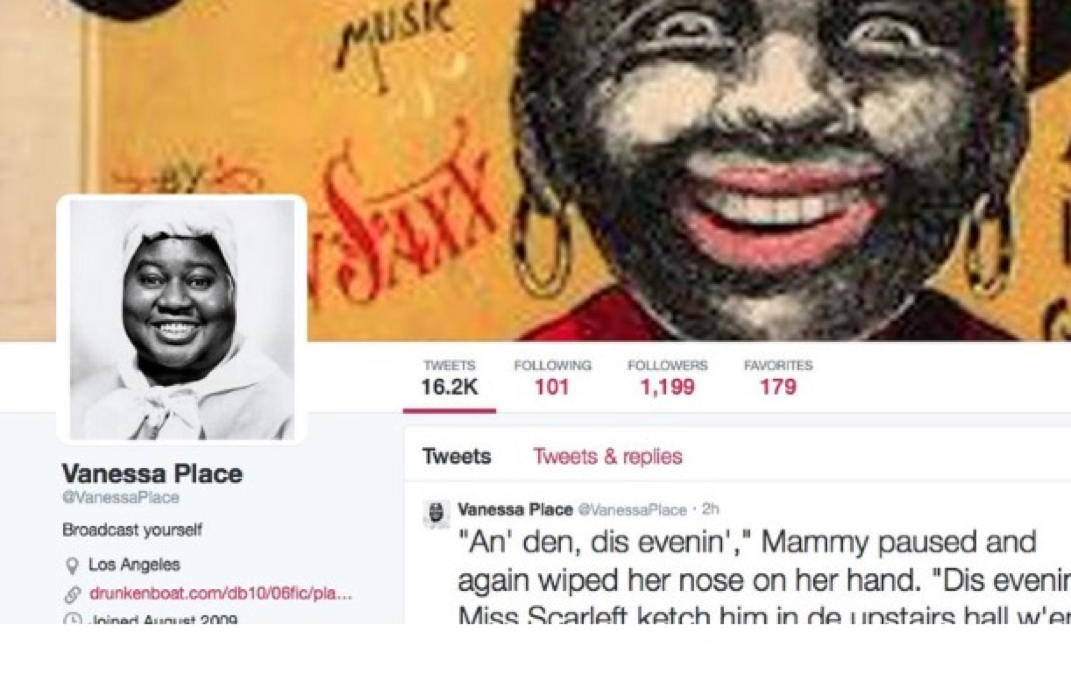|
Art is neither a creator of moral compass nor a solution to societies dysfunctions. Art is a response. A catalyst for discussion. So at the end of day when an artist and their work is perceived to reflect or mimic those systematic dysfunctions, by the community of people who have been affected by societies lack in moral judgment regarding basic human rights, that artist ceases to be an artist, and instead becomes a part of the "problem." Because... perception can be molded by either a single lifetime of privilege, or thousands of years of singular and collective oppression, slavery, and injustice. So yeah, sometimes there's a right and wrong.
Let's not take Freedom of Speech out of context. In the notes for Place's Miss Scarlett, Poetry Foundation writes, "...Place inverts our relationship to Margaret Mitchell’s best-selling and beloved American epic by prioritizing the formal aspects of language over Mitchell’s famous narrative." But this "note" reminds us that Place chooses to put aside the challenges faced by Hattie McDaniel at the time, the integral struggle she endured by accepting those roles, and the legacy she left for so many artists in film. Place chooses to deny history. How about we invert Place's relationship to art and society, in the context of history in America - and history of the Arts in America. Vanessa Place at best is simply boring, in her attempt to aesthetically rewrite revolutionary texts. And with "Miss Scarlett," she is simply wrong. There is no place for her in the literary community that I find home in. And this shit is getting old. Comments are closed.
|
AuthorJessica Ceballos Categories
All
Archives
January 2019
|

 RSS Feed
RSS Feed